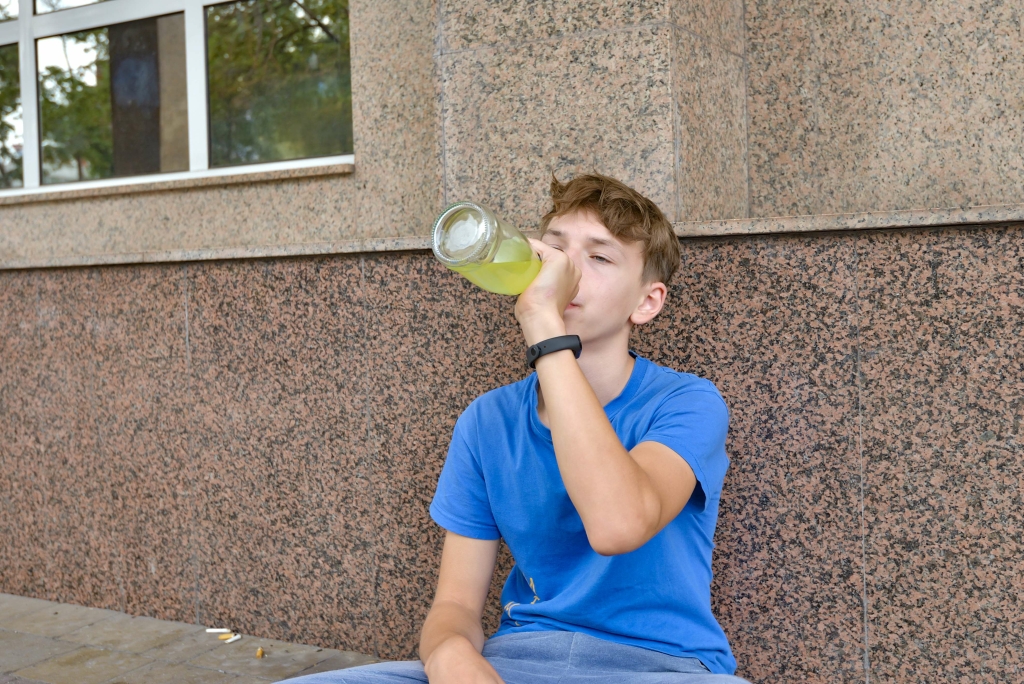Whats Sober Curious? Understanding The Movement
When you think about the effort you put into taking care of your body such as eating fresh foods, working out, or trying to reduce stress, it can feel contradictory to also pour yourself a few drinks every night. That disconnect is what’s prompting more people to step back and consider how alcohol actually makes them feel. Living a sober-curious lifestyle may have started among a small segment of the population, but it has grown into a mainstream movement with more and more people exploring a life without — or with less — alcohol. Sober curiosity gives people the chance to take a break from alcohol if they feel it might be unhealthy—even a little bit.
- As awareness grew, many began to embrace the idea of sobriety as a lifestyle choice rather than a necessity, leading to a shift in cultural attitudes toward drinking.
- I started spending that time doing things that actually made me feel good, like morning walks, paddle-boarding, or trying out new hobbies.
- Generation Z (or Gen Z) is a generation of collaborative and caring people, known to value equality, wellness, flexibility in the workplace, and supporting the planet.
- Alcohol use disorders, according to studies, affect one in eight adults in the United States, and for many sobriety is the only option for overcoming the disorder.
Alcohol and Christian Culture: A Complicated Relationship
- They are aware of the negative effects alcohol can have on their health and wellness, but they might still want to enjoy the occasional drink.
- As more people discover the benefits of living alcohol-free, the movement is expected to continue growing.
- For the sober curious, a Dry January or a Sober October can lead to the decision to remain alcohol-free; others pick up drinking where they left off; others still drink, but more moderately going forward.
- And while there is virtually no downside to taking a break from drinking alcohol — or quitting altogether — science is just beginning to study the ways abstinence might be good for you.
Experiment with no- and low-alcohol drinks until you find options that genuinely excite you. From botanical spirits to craft alcohol-free beers, the choices are endless. The Alcohol Use Disorders Identification Test–Consumption (AUDIT-C) is a key, three-question tool used by health professionals to screen people for alcohol misuse. The researchers surveyed 1,659 young adults who were in their mid-20s. Past research has shown that young adults often engage in high-risk drinking behaviors, such as binge drinking.
Improved Memory And Concentration
Sober curious people pay attention to how alcohol affects them physically and mentally. They drink deliberately, with more awareness and consideration, prioritising quality over quantity. Among young adults who received any treatment for substance use in the past year, a third were aware of the SC movement, and almost one in five had participated in Dry January or similar abstinence challenges. The findings also showed that half of TAAC participants reported drinking less following the challenge. Even after the challenge period concluded, 15% of participants reported they continued alcohol abstinence.
What Does It Mean to Be Sober Curious?
Some people may find it easier to moderate their alcohol consumption, while others may struggle significantly. This variation can affect a person’s experience within the sober curious movement. The sober curious movement, which encourages individuals to reevaluate their relationship with alcohol, brings to light several challenges and considerations. These factors influence the experiences of those who decide to participate in this lifestyle. Celebrity endorsements play a crucial role in shaping public perceptions regarding the sober curious movement.
This approach is generally non-negotiable and lifelong, https://thalyandco.com/2022/12/26/can-an-alcoholic-ever-drink-again-does-one-drink-3/ particularly for those recovering from alcohol addiction. There are numerous reasons Americans are embracing this alcohol-free or alcohol-light lifestyle. For many, it reflects a broader trend within their generation to prioritize physical and mental health, but for others, finances are driving them to cut back. For beverage manufacturers, this shift in consumer behavior and mindset represents an opportunity to create new alcohol-free products to market. And the market is changing to meet this new demand, according to Google Trends data.
Better Sleep
For those individuals, the journey towards being sober can be the first step toward seeking help for alcohol dependency. The term “sober curious” simply means you are asking questions about the role of alcohol in your life. For personal or wellness reasons, you are examining the “why” behind your drinking, the way alcohol affects you, and how you might feel if you cut back on the amount of alcohol you drink or stopped drinking for a while.
Embracing a Second Chance at Life After a Lung Transplant
“And I know I wouldn’t be doing those things if I was still drinking.” The members of this club work out, have demanding jobs and simply don’t want to feel foggy or hungover anymore. For example, consider how good you will feel the next day when you wake up well-rested and clear-headed. If it helps, try to recall a nasty hangover or two from the past, when you woke up with cotton-mouth and a jackhammer headache, dragging yourself into work for an early meeting. At Ria, we offer weekly meetings with certified counselors to help members stay on track and build skills for long-term sober curious change.

Embracing Yourself A Guide to Self Kindness in Everyday Life
The Surgeon General released a statement in January 2025 warning of the risks of drinking, marijuana addiction even in moderation. There’s evidence to link alcohol use to an increased risk of developing several types of cancer. Going sober curious allows you the opportunity to see how sobriety or moderation might fit into your life.

Reducing alcohol can improve your mood, sleep, and productivity, while decreasing your risk of depression and anxiety, and diseases like stroke, heart disease, and certain cancers. Modified drinking habits may translate to abstinence, moderation, or somewhere in between. The goal of sober curiosity is to develop a relationship with alcohol that is right for you, rather than conforming to social norms which say you are either a “drinker” or in recovery. For others, trying to take a break from alcohol may lead them to recognize that drinking has a stronger hold on their day-to-day life than they realized. Seeking help for alcohol addiction or any substance abuse disorder can feel challenging, but there are many resources to help you.

